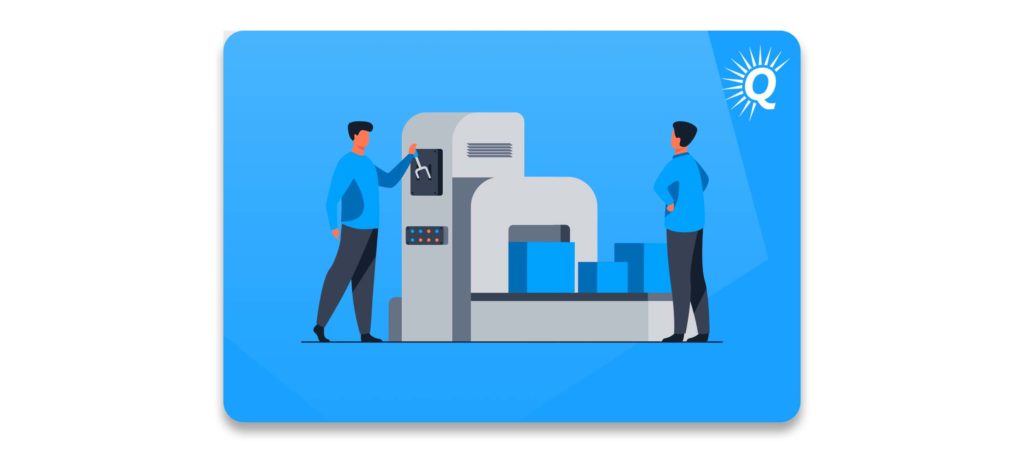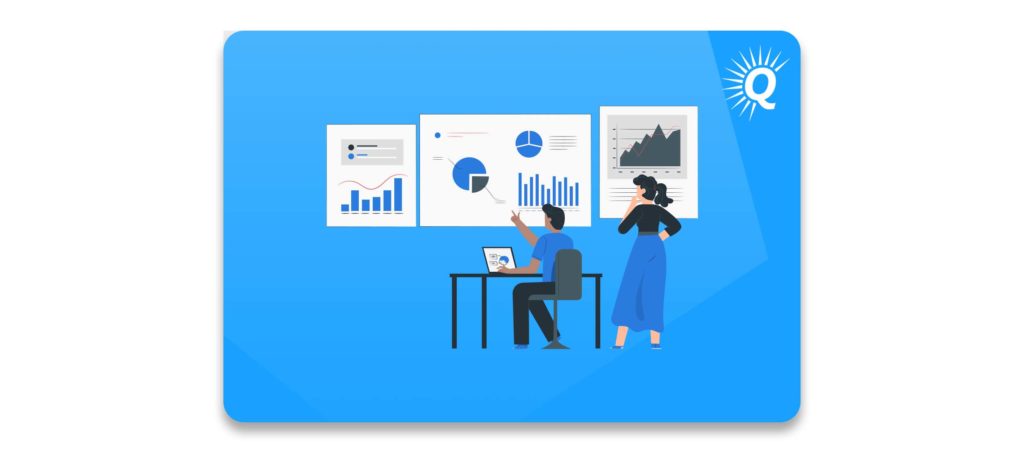Topics:
Never Miss a Beat - Get Updates Direct to Your Inbox
FILTER:


Seven Things Buyers Look For When Buying a Business
By Quiet Light
If you’re considering the possibility of selling your company, it’s important to know what buyers look for when buying a business. By understanding the criteria investors use to evaluate acquisition opportunities, you’ll be in a better position to attract more buyers, receive higher offers and negotiate better deal terms when it’s time to sell.
In this article, we discuss seven critical elements buyers look for when buying a business. We also share actionable steps you can take to make your business a desirable acquisition target among potential buyers.


What Buyers Look For When Acquiring a Business
The more areas your business excels in, the more desirable it will be among potential buyers. In turn, businesses that exhibit several different desirability characteristics typically receive more offers and sell for a higher purchase price.
All of the following elements fall into one of four categories, which we refer to as the Four Pillars of Value. These pillars include growth, risk, transferability, and documentation.
Growth rate
Growth is one of the most important areas potential buyers look at when buying online businesses. Businesses with a higher growth rate are more valuable than those that are declining or have plateaued.
The most important growth metric is seller’s discretionary earnings (SDE) growth, although buyers also pay attention to revenue growth. If your business has a strong history of steady growth, it instills confidence in buyers that its future earnings will continue to climb. For this reason, it’s typically best to sell your business during a period of growth, assuming you’re ready to sell then.
“The more areas your business excels in, the more desirable it will be among potential buyers.”


Stability
Business acquisitions represent a significant financial investment for buyers. Therefore, most buyers want to have confidence the business is stable and will continue to perform well. Stability relates to the category of risk.
If your business’s revenue and earnings have dramatic and unpredictable swings, that could cause concern. Even if it’s performing well at the present time, buyers may be wary if the line graph of your earnings resembles a roller coaster. Desirable businesses are those that don’t just show positive growth but also demonstrate a certain level of consistency and reliability in performance.
Thinking of Selling Your Business?
Get a free, individually-tailored valuation and business-readiness assessment. Sell when you're ready. Not a minute before.
Age of the business
Another risk factor is the age of your business. Even if a young business has a strong growth rate, it will typically be a less desirable acquisition target than one that has been around for many years.
From an investor’s perspective, young businesses haven’t proven their long-term viability in the market. What if your business is riding a short-term fad that is going to fade within a year or two? Or, what if competitors are planning to sweep in and take your market share? Without a sufficient track record, investors aren’t able to accurately answer these questions. In turn, your business won’t be worth as much.
Typically, it’s best to have at least 18-24 months of history at a bare minimum. Having said that, businesses that have been around for many years have a clear advantage when it comes to desirability among buyers.
Defensibility
Defensibility is another element that smart buyers look for when buying a business. If you’re drop-shipping private-label products that competitors can easily replicate, that could cause concern, especially if you don’t have strong branding or a trademark. On the other hand, if you’re selling an expensive, patented product under a recognized brand name that you own, your business’s value will be higher. For ecommerce and Amazon businesses, reviews can be another factor that determines your business’s defensibility. Not to mention, defensibility allows you to sell products for higher prices, thereby increasing profitability and cash flow.


Transferability
As one of the Four Pillars of Value, transferability is an important element that determines a business’s desirability among potential buyers. If your business can’t be easily transferred to a new owner, there are going to be fewer interested buyers.
For example, let’s say you own a blog that relies heavily on your personality for marketing and sales. In such a situation, it would be very difficult to transfer the online business to a new owner. Reducing your business’s dependency on you is one of the keys to attracting a qualified buyer.
“If your business can’t be easily transferred to a new owner, there are going to be fewer interested buyers.”
Bookkeeping practices
Although it might seem like a minor point to some sellers, if you own an ecommerce business, your bookkeeping practices play a significant role in the selling process. This falls under the documentation pillar.
For ecommerce businesses, it’s important to be able to provide a monthly financial statement on an accrual basis. Unlike cash accounting, accrual accounting allows potential buyers to understand trends and seasonality on a much more detailed level. This enables them to fully understand the nature of your established business so they can make an informed investment decision.
Operational efficiency
Most buyers don’t want to be cleaning up someone else’s mess after buying a business. This applies to all types of buyers, including private equity buyers, individual business owners, financial buyers, or buyers using an SBA loan. Similarly, if you work with an investment banker, a financial buyer or a strategic buyer, they’ll care as well. If your business is disorganized and difficult to manage, that will be a red flag for a potential buyer. On the other hand, if your business has clear standard operating procedures in place, a business buyer will be impressed. Additionally, having efficient operations in place makes it much easier for the next business owner (or you) to step away from the business.


How to Make Your Business Stand Out to Potential Buyers
If you’re planning on selling your business at some point in the future, it’s smart to plan ahead. A few steps you can take to increase your business’s value and desirability include:
- Increase your growth trends
- Diversify your revenue streams
- Improve your defensibility
- Make sure your business is well organized and easy to run
Investing in activities that lead to growth is a great way to make your business more attractive in the acquisition marketplace. Improving SEO, investing in content, and launching more products are a few common avenues for growth.
Additionally, if your small business relies primarily on just one or two revenue streams, you may want to consider diversifying. Not only will doing so increase your bottom line, but it will also make your business more stable, thereby becoming more desirable to acquire.


Defensibility is another key attribute that can make your business stand out. If you’re able to secure IP assets such as patents and trademarks, that can go a long way to fortifying your position in the marketplace. Even if your brand never becomes a household name like some large corporations, it will still help you attract high-quality buyers.
Lastly, most investors prefer buying a business that is well-organized and easy to manage. Therefore, spend some time optimizing operations so everything runs as smoothly as possible.
Buy a Profitable Online Business
Outsmart the startup game and check out our listings. You can request a summary on any business without any further obligation.
Where to Find Qualified Buyers for Your Business
In addition to making your business as valuable and desirable as possible, it’s important to have access to a wide pool of buyers in order to find the right buyer.
Some owners try to list their businesses for sale through online marketplaces. While that route can make sense for smaller businesses (i.e., those with annual revenue less than $100,000), this approach has some significant drawbacks. This is especially true if you’re not familiar with the process of executing a business sale.


Another option is to work with a reputable business broker who’s sold businesses similar to yours. Not only can business brokers provide you with a large audience of qualified buyers leading to more offers, but they can also help you negotiate a higher purchase price and better deal terms when it’s the right time to sell.
When to Work with a Business Broker to Find Buyers
Owners of businesses valued over $100,000 will typically benefit from working with a business broker. There are several key benefits a business brokerage can bring to the table, including:
- Providing an accurate valuation
- Establishing an effective exit strategy
- Creating a marketing package
- Vetting each prospective buyer
- Negotiating favorable deal terms
- Closing the deal


Make sure your brokerage has experience facilitating similar business exits. A knowledgeable business broker can provide insight to help you understand the true value of your existing business. Additionally, they can provide you with recommendations to help you maximize value before going to market. In many cases, this can help you add tens or even hundreds of thousands of dollars to the purchase price of a sellable business.
When you’re ready to sell, a broker can also create your marketing package, list your business, and vet buyers. This helps you avoid the “tire kickers” and work with buyers who are highly qualified to carry on your life’s work.
Once you start receiving offers, your broker can help you evaluate them and negotiate favorable deal terms. Because they know what a good deal looks like, they can cut through the confusion and simplify the process. Not to mention, there’s a certain peace of mind that comes from working with someone who’s been in your shoes and knows how to navigate the selling process.
Thinking of Selling Your Business?
Get a free, individually-tailored valuation and business-readiness assessment. Sell when you're ready. Not a minute before.





